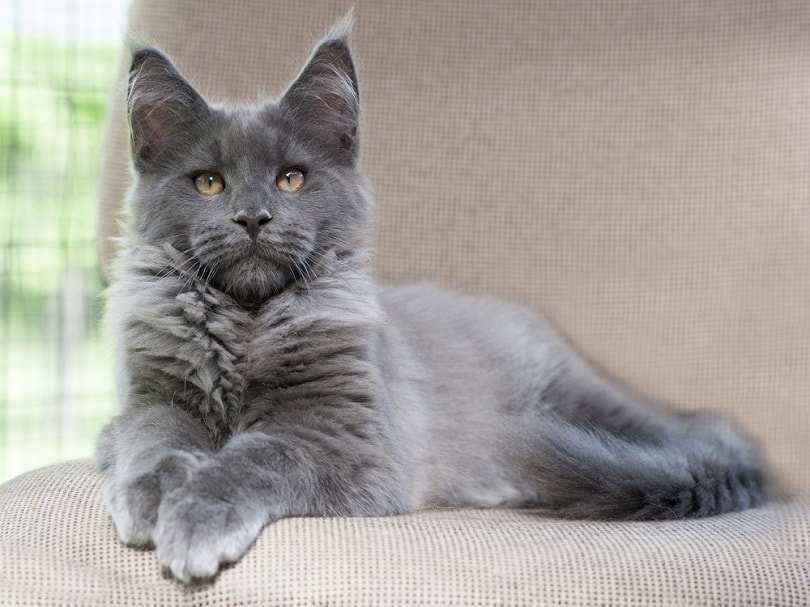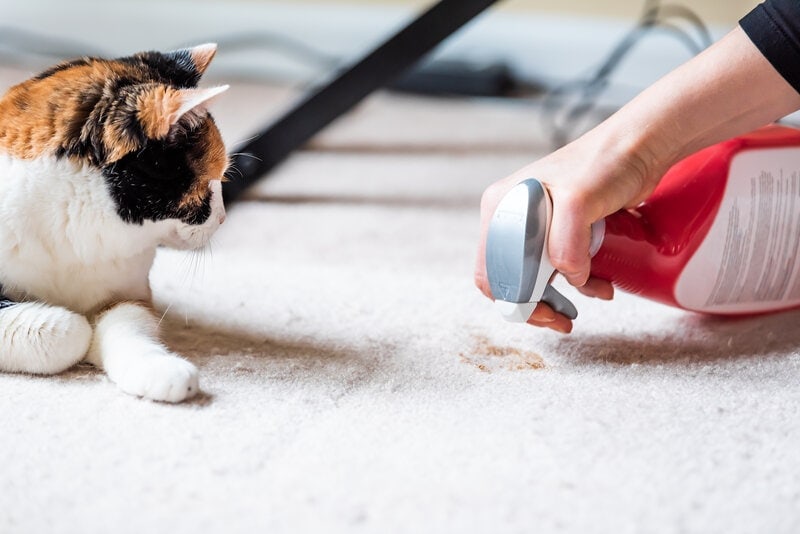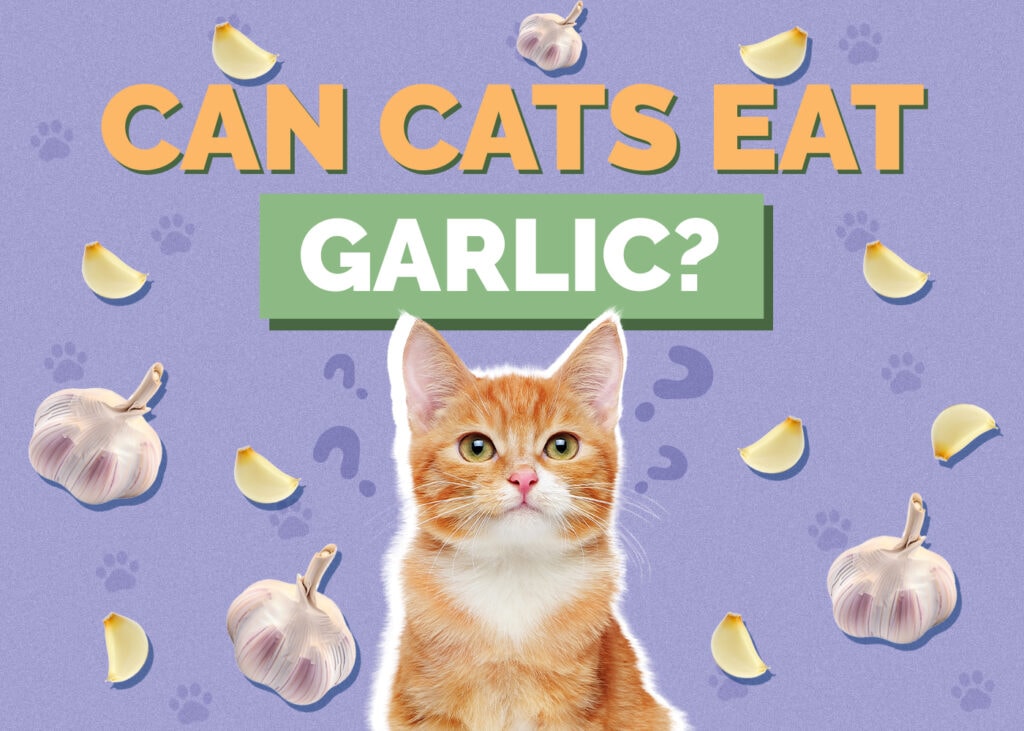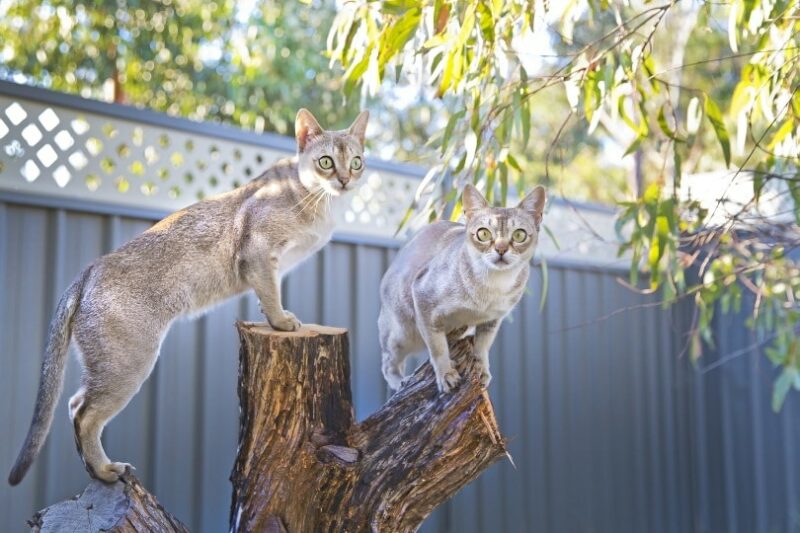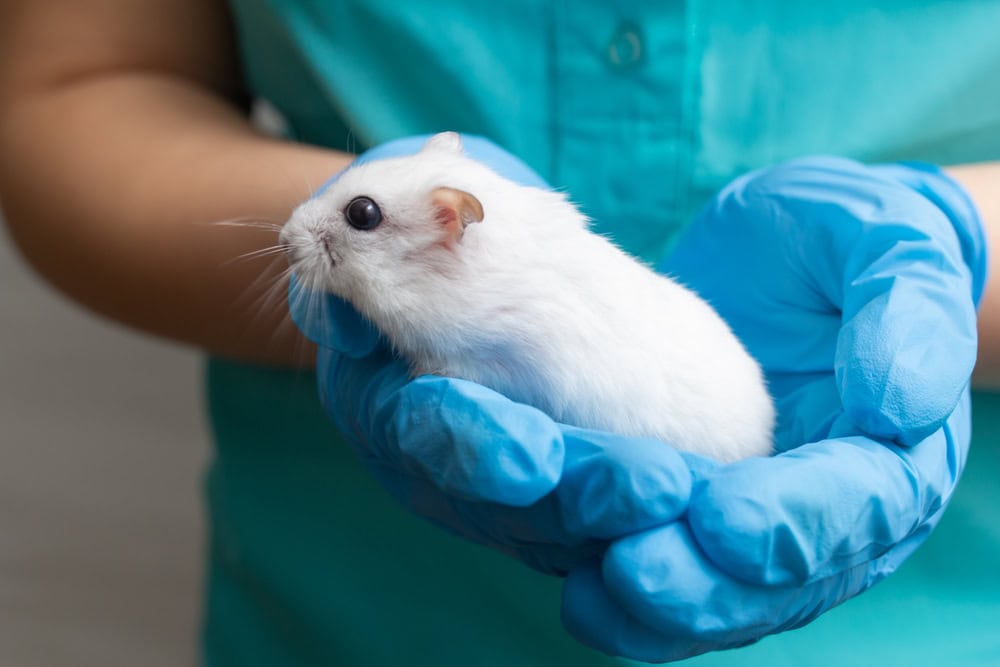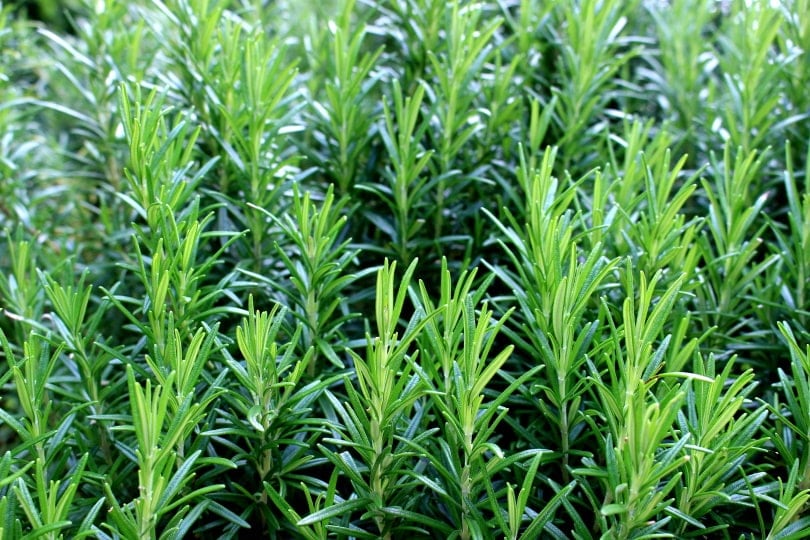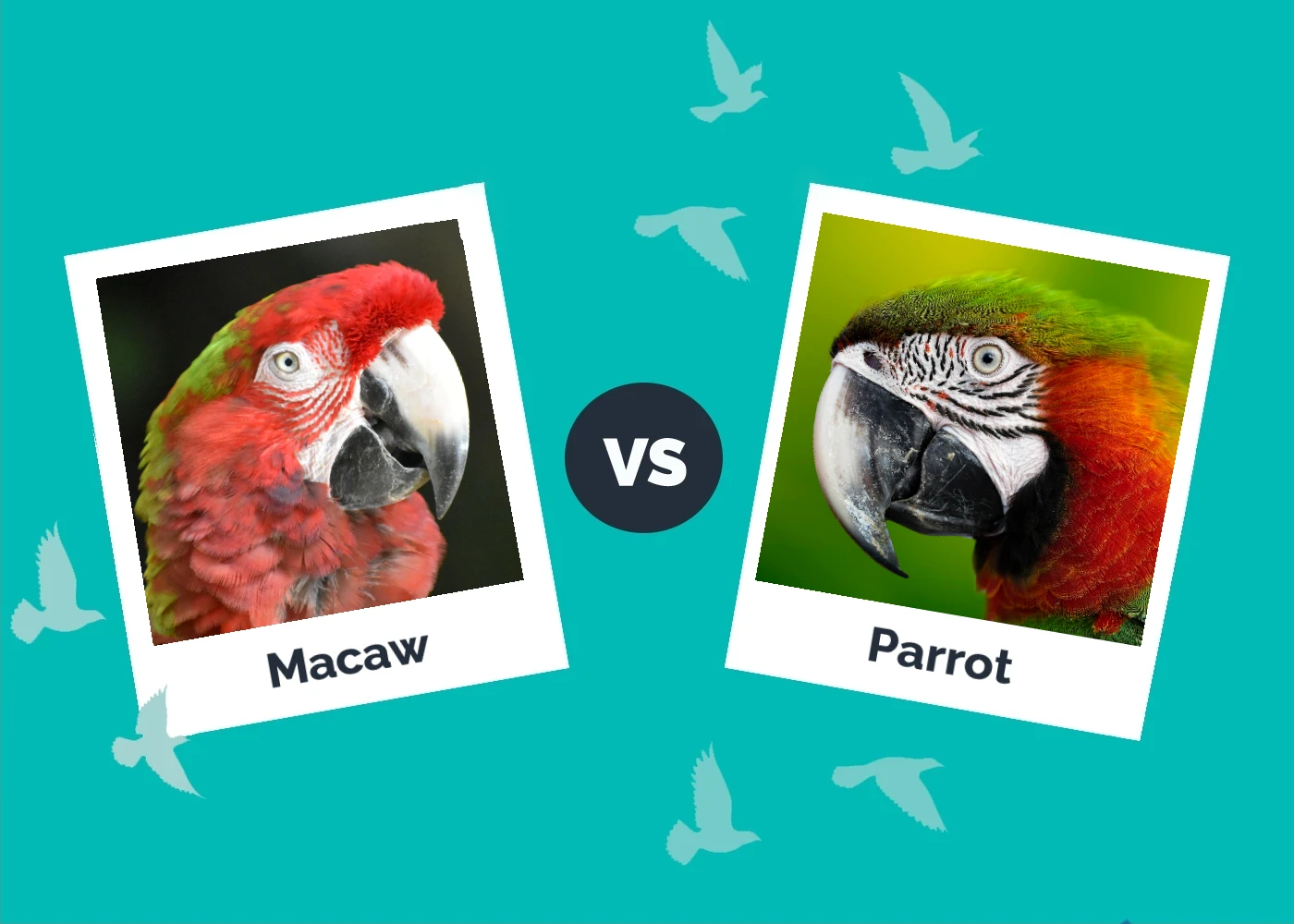
[jump-links title=”Click to Skip Ahead”]
Visual Differences
At a Glance
Macaw Overview
Parrot Overview
[/jump-links]
If we were to tell you that the macaw and the parrot are one and the same, you’d probably think we were fibbing. Did you know that there are 350 parrot species?1 Some birds that fall into this category may surprise you. For example, cockatiels, parakeets, and cockatoos are all part of the parrot species, with cockatiels and parakeets being smaller versions compared to other birds in this species. In fact, macaws are a type of parrot. Parrots are classified by their curved beaks, sometimes called hookbills. If you see a bird with a curved beak, the bird is indeed a parrot.
In this post, we’ll compare the macaw and the parrot and discuss their differences as well as their similarities. Both birds are colorful with high intelligence, and if you’re thinking of adding either one to your family, you’ll have a better understanding of the two so you can make an informed decision should you adopt one.

Visual Differences
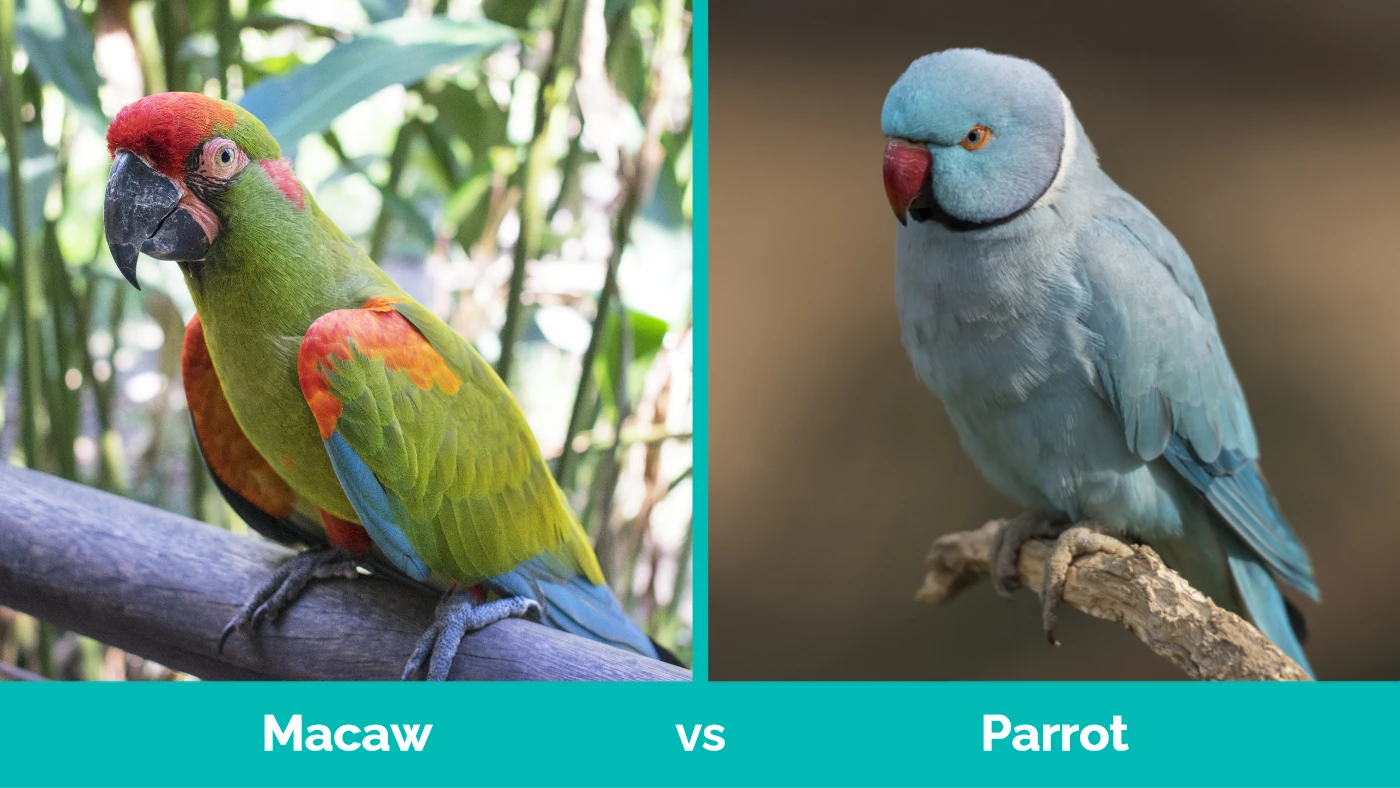
At a Glance
[su_row][su_column size=”1/2″][su_box title=”Macaw” box_color=”#01BAB5″ radius=”0″][su_list icon=”icon: star” icon_color=”#01BAB5″]
- Average length (adult): 12 to 14 inches
- Average weight (adult): 5 ounces to 3.7 pounds
- Lifespan: 30 to 60 years
- Exercise: No limit
- Grooming needs: Low
- Family-friendly: Yes
- Other pet-friendly: Depends on the species
- Trainability: Very trainable, high intelligence
[/su_list][/su_box][/su_column][su_column size=”1/2″][su_box title=”Parrot” box_color=”#01BAB5″ radius=”0″][su_list icon=”icon: star” icon_color=”#01BAB5″]
- Average height (adult): 3– to 0 inches
- Average weight (adult): 0.4 ounces to 3.7 pounds
- Lifespan: 10 to 30+ years
- Exercise: No limit
- Grooming needs: Low
- Family-friendly: Yes
- Other pet-friendly: Depends on the species
- Trainability: Varies depending on the species
[/su_list][/su_box][/su_column][/su_row]

Macaw Overview
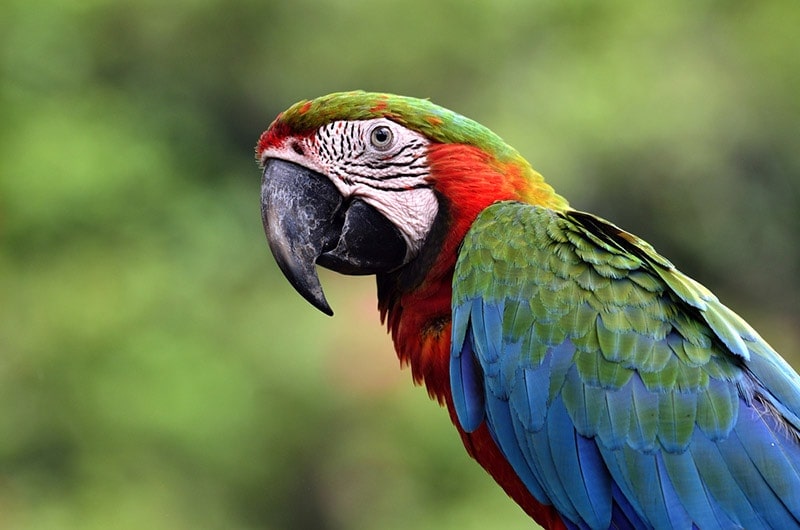
There are 19 species of macaws, with a few being extinct. However, there are still many macaw species around and kept as pets. Macaws are large birds in their own right, and their vibrant plumage and high intelligence are often enough to bring attention to them. Let’s check out specific traits of the gorgeous macaw.
Personality / Character
One word can be used to describe macaws, and that word is big. From their squawks to their personality, rest assured there is nothing small about them. Despite their large everything, even from their large beaks to their large talons, they have surprisingly big hearts and sensitive natures. They love to play and chew up toys, especially ones made from wood or shredded paper. They may even make a game out of lunging at you to spook you. To the macaw, your fear is worth a chuckle. Keep in mind, though, that this behavior is not aggression but rather just a game.
Any macaw owner knows how loud they can be, and sometimes, their loud squawks can be ear-piercing and startling. This is crucial to know if you’re thinking of getting a macaw so that you can be prepared.
These birds love to play and will happily engage in playtime that challenges them, such as foraging activities. A macaw will love puzzle toys that hide food, as this replicates foraging for their own food in the wild. When owning a macaw, you’ll need to always have plenty of toys on hand for enrichment, and they will destroy toys often. For the DIYer, you can make your own macaw toys for next to nothing to save money if needed, such as making toys from toilet paper rolls and supplying your macaw with cardboard boxes and shredded paper.
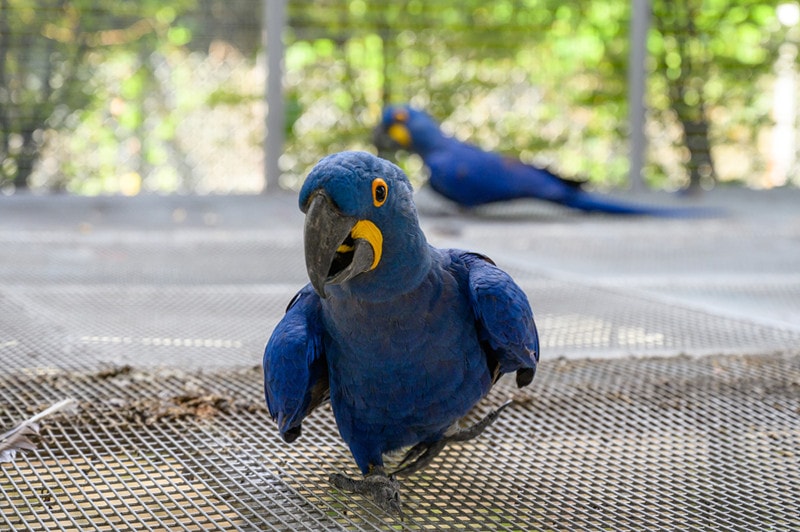
Training
People are often attracted to the fact that some parrots are capable of exceptional mimicry, but not all parrot species master it. Macaws can be taught to talk, and they also may master whistles and other sounds and noises they are exposed to in their environment. Most macaw species can mimic human voices to an uncanny tee, and it’s remarkable to listen to.
Macaws can be taught to dance, talk, wave, and other cute and fun tricks. They can be stubborn at times, but with patience, persistence, and positive reinforcement, you can train a macaw to do a vast number of cool tricks and learn an extensive vocabulary.
Lifespan
Many parrot species have long lifespans, which is something to consider when contemplating adding one to your family. Macaws can live up to 60 years, depending on the species, so it’s wise to have a plan in place should something happen to you. Odds are, your macaw will outlive you! Even the Hahn’s macaw, which is the smallest macaw in the species, can live up to 30 years.
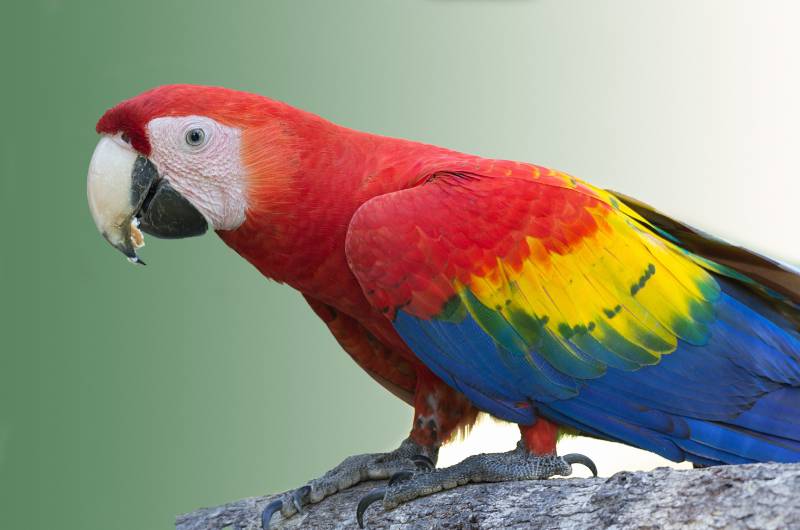
Suitable For:
Macaws are suitable for people who have the time, energy, and patience to own one. They require constant interaction, and if you’re rarely home, a macaw will likely be unhappy spending much of their time alone, which could result in unwanted, destructive behaviors. Macaws are known to pluck their feathers when bored or stressed, and it takes an owner willing to train them properly to keep them happy. Bear in mind that while mimicking human speech is incredible, it can sometimes get annoying, and it takes patience on your end to live with a macaw. Nonetheless, they are fascinating creatures and make excellent pets with the right owner.

Parrot Overview
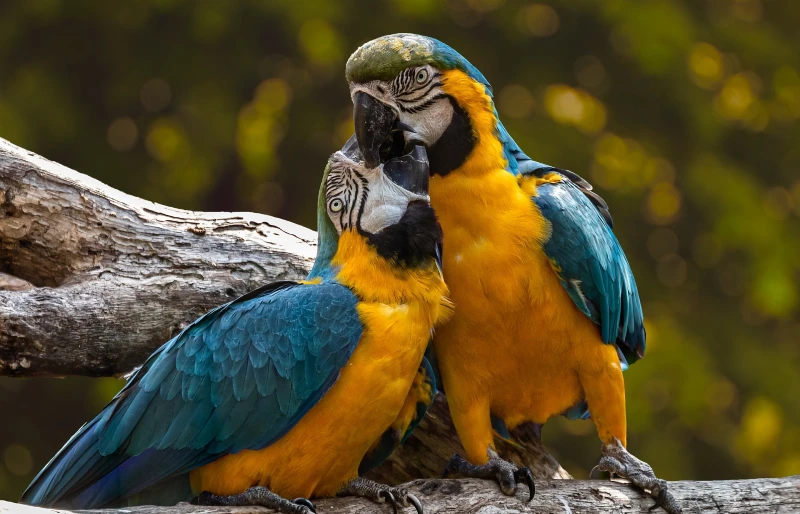
Owning a parrot of any species is a rewarding, fun, and cool experience. They come in all sorts of vibrant colors, which vary depending on the species. Some of the more common parrots kept as pets are cockatiels, cockatoos, the Amazon grey, parrotlets, macaw, Amazon parrots, lovebirds, and parakeets, to name a few. All parrot species have their own unique traits and characteristics, but one thing they all have in common is how neat it is to own a pet bird if you’re willing to care for them properly.
Personality / Character
Most parrot species form strong bonds with their owners. They tend to be sociable, inquisitive, and talkative; however, not all parrot species master mimicry, as some parrots’ vocalization is hard to understand and may only be understood by the bird’s owner. Parrots, in general, are popular pet birds to own due to their fascinating qualities and abilities to talk or mimic sounds.
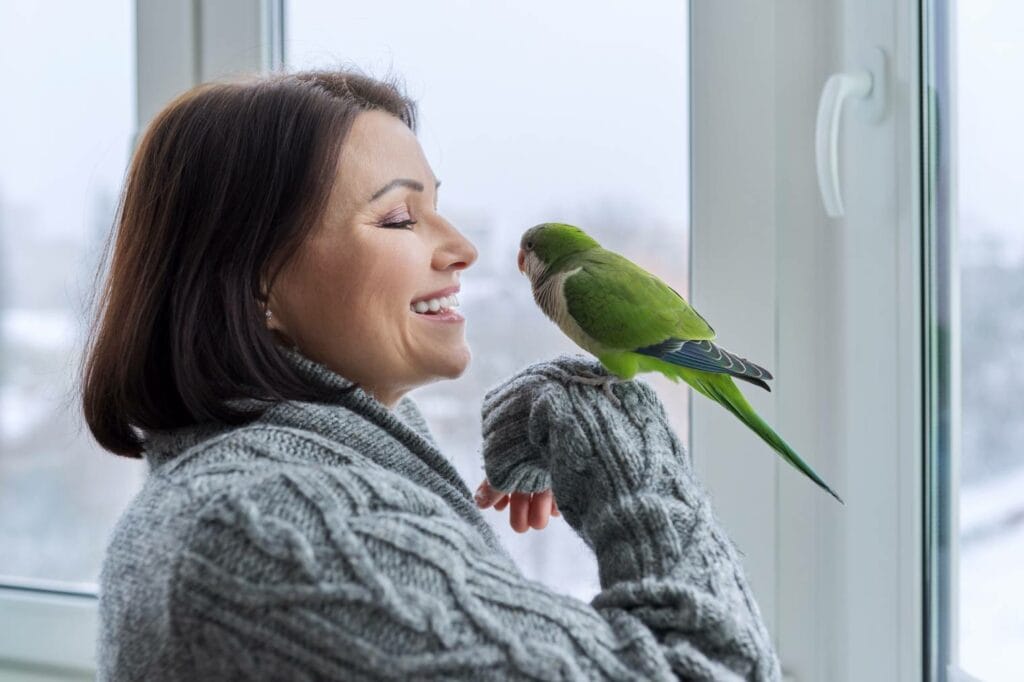
Training
Parrots are intelligent and are capable of learning tricks and speech—how easy it is to train one will depend on the specific parrot species. For example, some birds are better for beginners as far as training than others. Cockatiels are smaller, fun-loving parrots that are easy to interact with and train. They are quick to learn and make exceptional pet birds. They are the smallest members of the cockatoo family and are outgoing, friendly parrots. They are typically a favorite among bird owners who want a smaller parrot instead of a large macaw.
Lifespan
The lifespan of parrots will vary greatly according to the species. Lovebirds are considered seniors at 6 years old, whereas macaws can live 50+ years. Cockatiels are considered seniors at 12 years of age, and larger parrots, such as the African grey or Amazon, are not considered seniors until 30 years old.
With parrots, you have more options regarding lifespans. It’s wise to factor in your own age before getting a bird to ensure you’ll be around for the duration of the bird’s life. Put it this way: given a macaw’s longevity, this parrot will likely outlive you.
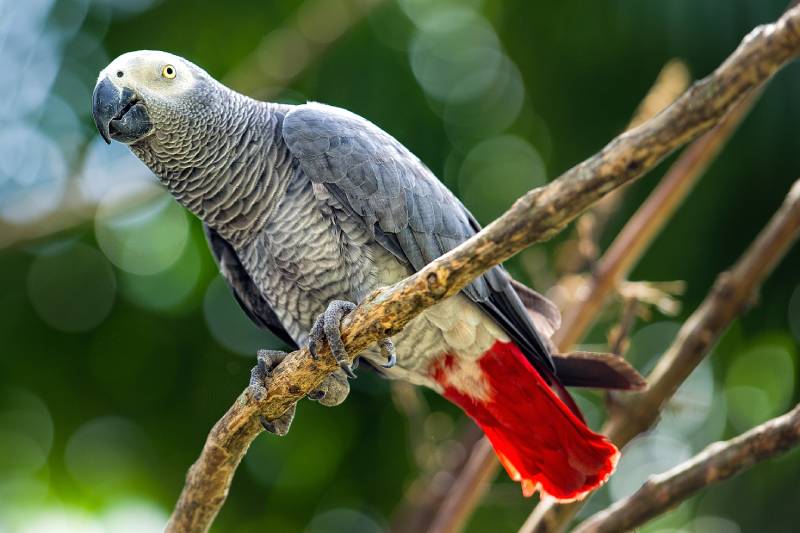
Suitable For:
Parrots are suitable for anyone with the time and energy to devote to the bird. Some parrots demand your attention and don’t do well being left alone for long periods. You must be willing to work with them, clean up after their daily messes, and provide enough enrichment for physical and mental stimulation.

Which Breed Is Right for You?
Even though macaws and parrots are one and the same, there are a few similarities between the two, depending on the species. The species right for you will depend on the size of the bird you want and what characteristics you’re looking for. For instance, macaws have incredibly strong beaks with a strong bite to match. Taking this fact into consideration is crucial because if you feel you’re not comfortable with a bird capable of taking your finger off (they are not aggressive but can do this), then you will be better off with a smaller bird, such as adorable lovebirds, a parakeet, or a cockatiel.
Size is also an important factor when considering getting a pet bird, as companion parrots vary in size. For example, lovebirds average 5 inches in length, whereas the macaw can reach 12 to 14 inches in length. Why does this matter? It matters because macaws will require much larger housing than a lovebird, and their large size alone needs ample space in your home. If you live in an apartment, you should factor in the loud noises macaws can make. Cockatiels, lovebirds, parakeets, and the like are much more suitable for apartment living. A rule of thumb is the larger the parrot, the more demanding and complex the care needs will be.
Related Read:
- Cockatoo vs. Parrot: Main Differences (With Pictures)
- Parakeet vs Lovebird: Vet Reviewed Differences (With Pictures)
[su_accordion][su_spoiler title=”Sources” open=”no” style=”default” icon=”plus” anchor=”” anchor_in_url=”no” class=””]
- Stephen Pruett-Jones on Naturalized Parrots of the World | Princeton University Press
- Macaw Parrot Resources – World Parrot Trust WP
- 10 Best Parrots for Beginners (And Why!)
[/su_spoiler] [/su_accordion]
Featured Image Credit: Left – Jace Hinton, Shutterstock | Right – Wilbert_Rodriguez, Pixabay








